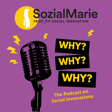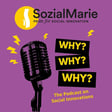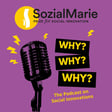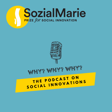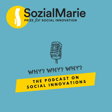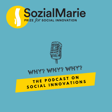
Episode 7: The trajectory of success
Welcome to Episode 7 of Why Why Why?
Today, we’re excited to introduce you to three remarkable women representing two inspiring initiatives. We have Rosa Bergmann and Caroline Loudon from HobbyLobby Vienna, Austria, and Rita Kishonthy-Kardos from EMMA Közhasznú Egyesület in Hungary.
HobbyLobby is committed to giving children equal access to after-school education and activities. Their journey is truly uplifting, showing how a simple idea can grow into a self-sustaining, scalable project.
Meanwhile, the EMMA Association runs the Community Roma Doula Service in Hungary, offering vital support to mothers during childbirth. This initiative empowers women and turns the team into role models within their communities, sparking a ripple effect of positive change and development.
I hope you enjoy this episode!
Jose A. Morales
